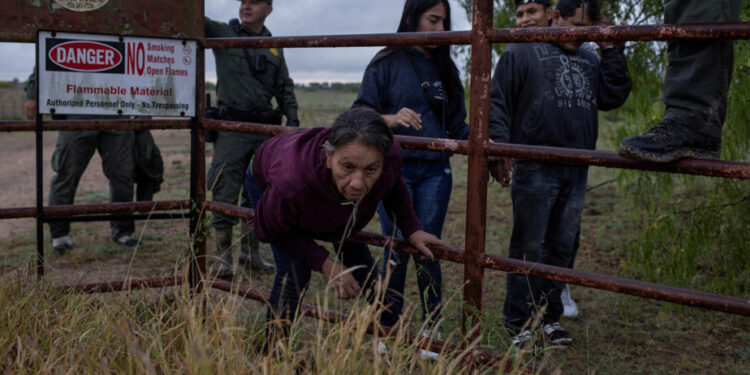(Concord) A federal judge of New Hampshire announced Thursday that it would authorize collective action including all the children concerned by the decree of President Donald Trump ending citizenship by soil law and would grant a preliminary injunction to block it.
Justice Joseph Laplante announced his decision after an hour -long hearing and said that a written order would follow. This order will include a seven-day stay to allow an appeal, he said.
The group is slightly more limited than that requested by the complainants, who initially included parents as complainants.
The legal action was filed on behalf of a pregnant woman, two parents and their young children. It is one of the many legal actions that challenge Mr. Trump’s decree aimed at refusing citizenship to people born of parents illegally or temporarily residing in the United States. The complainants are represented by the American Union for Civil Liberties (American Civil Liberties Union) and other organizations.
The 14the Amendment to the Constitution is involved. He enters that “anyone born or naturalized in the United States and subject to their jurisdiction is a citizen of the United States”.
The Trump administration argues that the expression “under its jurisdiction” means that the United States can refuse citizenship to children born of women illegally in the United States, thus ending what was considered an intrinsic element of American law for more than a century.
“The erroneous interpretations of the citizenship clause created a perverse incentive to illegal immigration, which had a negative impact on the sovereignty, national security and economic stability of this country,” wrote the lawyers of the government in the New Hampshire case.
The laplant judge, who had issued a restrictive injunction in a similar case, said that, although he did not consider government arguments as futile, he found them unconvincing. He added that his decision to issue an injunction was “not taken lightly” and that the deprivation of American citizenship clearly constituted irreparable damage.
Cody Wofsy, the lawyer for the complainants, and his team were flooded with disoriented and worried families in the decree, he said. Thursday’s decision “will protect each child in the country against this illegal, unconstitutional and cruel decree,” he argued.
Several federal judges had given national injunctions preventing the entry into force of President Trump’s decree, but the United States Supreme Court limited these injunctions in a judgment of June 27, granting the lower courts of 30 days to act. Given this period, opponents of the change quickly seized justice to try to block it.
In a case brought before the court of appeal of 9e United States circuit in the state of Washington, the judges asked the parties to write memories explaining the effects of the Supreme Court decision. The state of Washington and the other states affected by this prosecution asked the Court of Appeal to refer the case to the trial judge.
As in New Hampshire, a complainant in Maryland seeks to organize a collective action including all the people concerned by the decree. The judge set a deadline for filing the legal arguments written on Wednesday while he examines the request for a new national injunction in Casa, a non -profit organization for the defense of the rights of immigrants.
AMA FRIMPONG, CASA legal director, said the group insisted with its members and customers that it was not time to panic.
“No one is forced to change state immediately,” she said. We all fight in different ways, once again, so that this decree never can see the light of day. »»
Among the complainants of New Hampshire, designated only by pseudonyms, is a woman from Honduras whose asylum request is in progress and who must give birth to her fourth child in October. She told court that the family had arrived in the United States after being the target of criminal organizations.
“I don’t want my child to live in fear and hiding. I don’t want him to be the target of immigration services, she wrote. I fear that our family will be threatened with separation. »»
Another complainant, a Brazilian, has lived with his wife in Florida for five years. Their first child was born in March and they are requesting a legal permanent status based on their family ties – the father of his wife is an American citizen.
“My baby is entitled to citizenship and a future in the United States,” he said.



